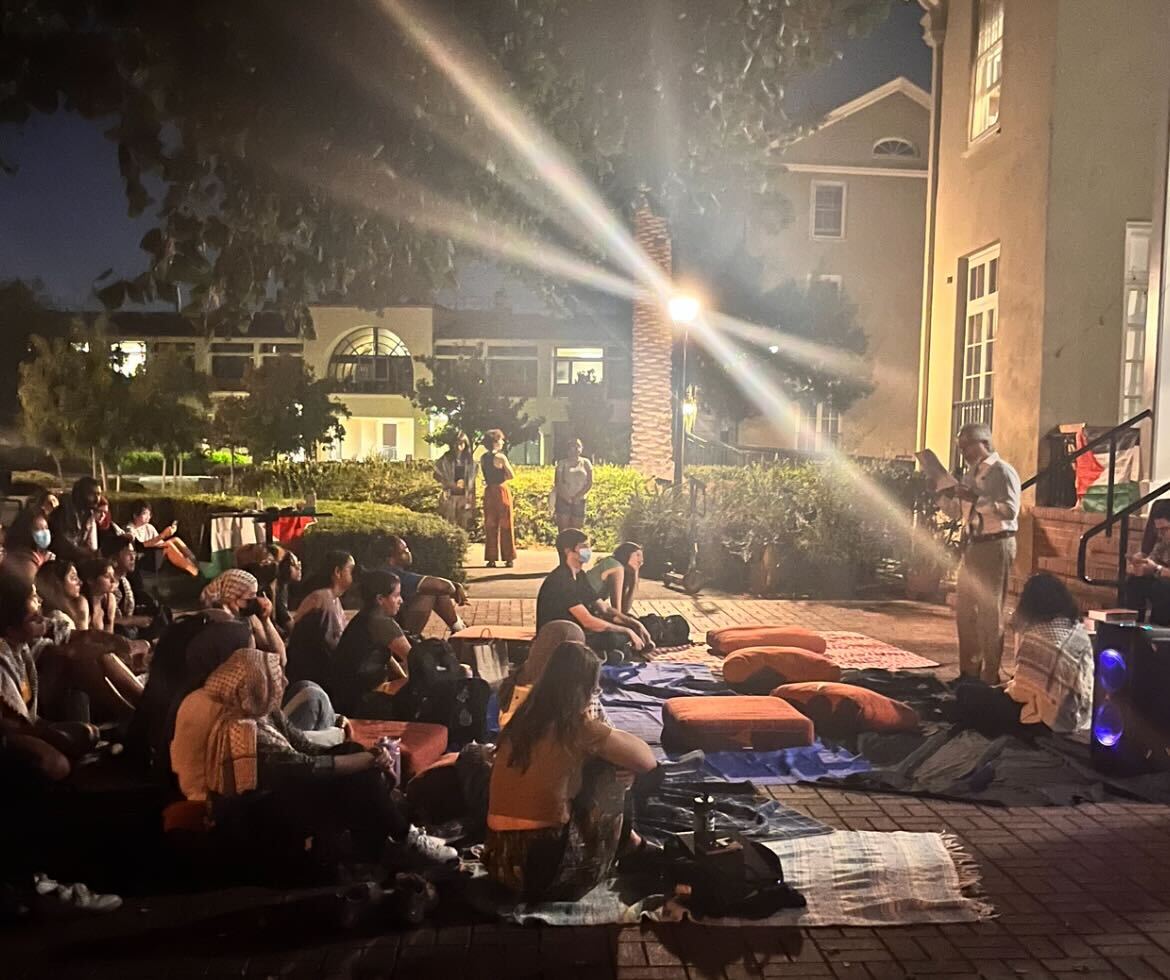Stanford Against Apartheid in Palestine (SAAP) hosted a teach-in on Monday to commemorate the lives lost in the year since the Israel-Gaza war began in Oct. 7, 2023.
The event, hosted in the evening outside Columbae, was attended by Stanford students and Palo Alto local residents.
“Since today is Oct. 7, I wanted to be involved in any kind of movements or teach-ins or anything that was going on in the area,” said Zoha Cochinwala, a Palo Alto resident.
Comparative literature Professor David Palumbo-Liu started the teach-in with a historical recount of the Palestinian-Israel conflicts that took place before Oct. 7, 2023. He told the history of Israel’s relationship with its neighbors, beginning with the Six-Day War in September 1967 up to the Israel’s recent attacks on Lebanon.
“Attacks on Lebanon cause families that have already been displaced to become refugees yet again,” Palumbo-Liu said during the event, urging audience members to stand in solidarity with those affected by the conflicts in Lebanon and Gaza.
Palestinian students shared their personal experiences of grief over the last year, including struggles with declining mental health as the conflict dragged on. Members of the audience were given fact sheets that included statistics on those affected by the ongoing conflict.
Yousef, a Palestinian undergraduate born in Al Ahli Hospital, said it was “not easy” to see community spaces he knew from his childhood — like the hospital — now burned and empty.
“There is more to genocide than who dies and stays alive. If you actually ask any genocide survivor, they would tell you it’s those who died that are the ones who made it,” said one of the speakers, who did not share their name at the event.
The speakers shared anecdotes of their grandparents and other elders, too. One speaker, who did not share their name during their speech, said it is important and necessary to recount these stories.
“They say the old will die, and the young will forget, but we can’t forget. That’s why we need these anecdotes,” the speaker said.
Palo Alto resident Fiza Cochinwala commended the students’ bravery in voicing their thoughts.
“I feel like you guys are just students, you are supposed to be enjoying your life,” Cochinwala said. “To make this so important, you’re giving up on making certain memories but being blessed with different memories instead.”
Another speaker who did not disclose their identity during their speech said that the Gaza Strip is only 10 times as big as Stanford’s campus.
“Every hour Gaza received 42 bombs,” they said. “It’s like living in [Governor’s Corner] and having bombs dropped on every dorm between [Columbae] and there.”
The teach-in concluded with a Q&A with the audience members and an announcement on the rest of the week’s events. Panelists encouraged members of the audience to reflect on the talk and to attend Tuesday’s meditation taking place from 7 to 8:30 p.m with the Markaz Support Group.
SAAP is also hosting an art workshop at Columbae on Tuesday and a walkout on Thursday. Meanwhile, Stanford Students for Justice in Palestine (SJP) will be hosting a fundraiser on Friday.
A previous version of this article misrepresented the organizer of the teach-in, art workshop and walkout. These events are organized by SAAP, not SJP. The Daily regrets this error.
